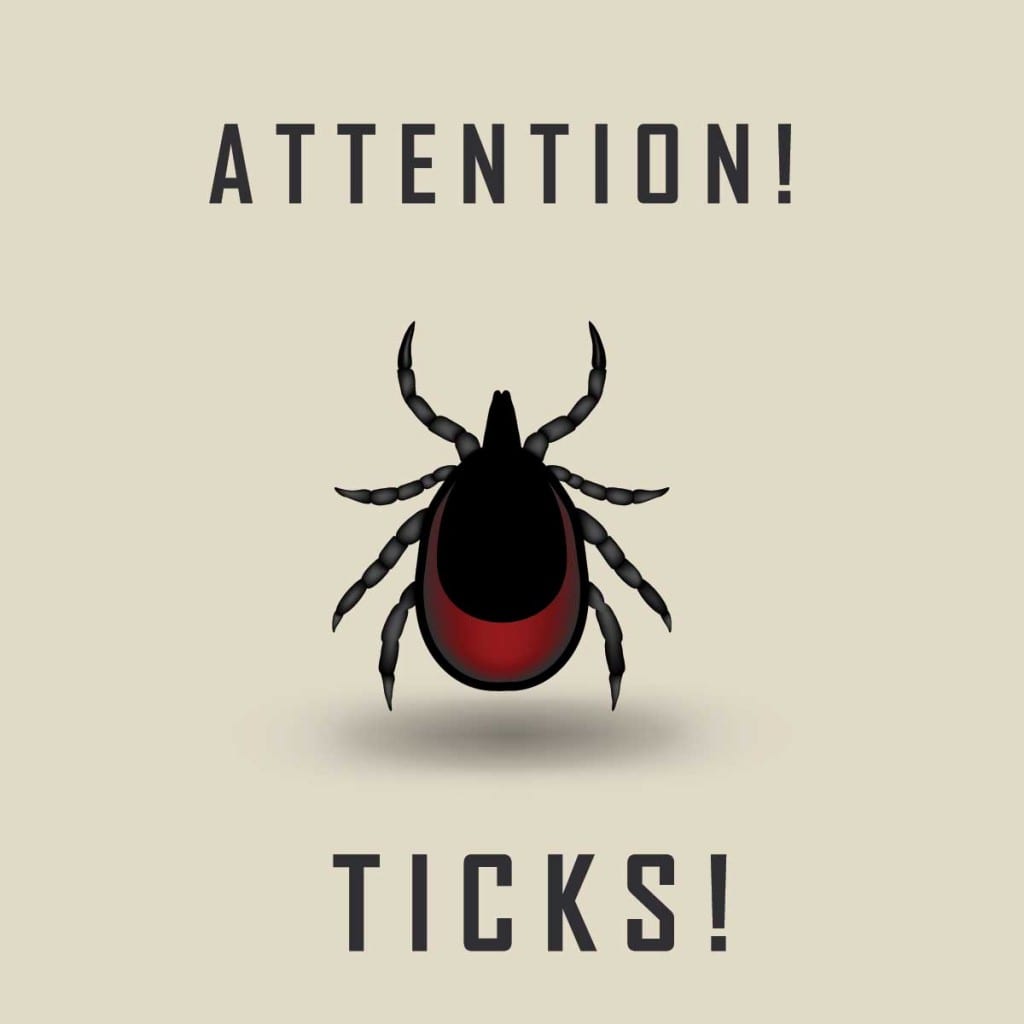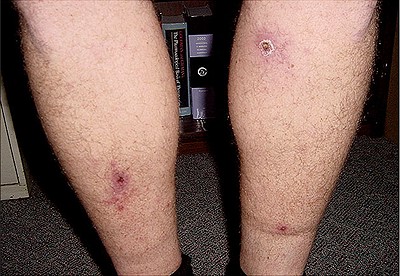LYMEPOLICYWONK: Is persistent Lyme disease caused by another organism identified by Dr. Willy Burgdorfer over 35 years ago? Why hasn’t anyone looked into it?

A new article today on STAT, an affiliate of the Boston Globe, raises serious questions about the original publication of the discovery of Lyme disease by Dr. Willy Burgdorfer 35 years ago. The STAT article is based on a review of Willy’s research notes and papers uncovered in his garage shortly before his death. These papers suggest than another pathogen found in patient’s blood during this period, Rickettsia helvetica, may play a significant role in Lyme disease.
Willy referred to this pathogen, which he first discovered in Switzerland in 1978, as the “Swiss Agent.” Rickettsia helvetica is a member of the spotted fever group rickettsia.
Willy’s research with Allen Steere, who first described Lyme disease, found the Swiss Agent present along-side Borrelia in US patient samples. However, the article Willy and his co-author Jorge Benach published on the cause of Lyme disease in 1982, neglects to mention the Swiss Agent entirely.
This omission has meant that research for the past 35 years has excluded any potential role the Swiss Agent may play in the persistence of Lyme disease in the US. For example, patients infected may have symptoms similar to Lyme disease: a rash (although typically smaller spots), fever, muscle pain, or headache. But these patients would test negative for Lyme disease. Patients may also have an eschar type of rash (blackened or crusted skin).

Figure 1: Inoculation eschars associated with the site of tick attachment in a patient infected with R. parkeri. (Photo courtesy of CDC)
The first cases documenting human illness in Europe in 1999 and involved the sudden unexpected cardiac death of two Swedish men during exercise. Another case published in 2009 involved a Swedish patient with meningitus. Today the Centers for Disease Control and Prevention, includes Rickettsia helvetica in broadly in the grouping Spotted Fever group Rickettsia (SFGR), but confines its territorial range to central and northern Europe.
The CDC notes that severity of Rickettsia diseases vary by species and advices: Prompt treatment with doxycycline is recommended if tick-borne SFGR is suspected, and should never be delayed pending the outcome of diagnostic tests. The CDC refers to disease caused by Rickettsia helvetica as Aneruptive fever.
Treatment of the Swiss Agent may involve different antibiotics or durations of treatment. The two pathogens may also exist side-by-side as co-infections increasing the severity of illness. Although Willy developed a test for the Swiss Agent that is used in Europe, it is not available in the US because it was not thought to be needed. This means that US patients cannot be tested for the specific pathogen. In addition, the CDC maps of Rickettsia distribution show that it is widely distributed, even in states the CDC consider non-endemic for Lyme disease.
Rickettsiosis in the USA 2000-2013

Rickettsia distribution in the United States. (Biggs et al, MMWR Recomm Rep 2016;65(2):1-44)
The STAT article reports that both Jorge Benach and Allen Steere now say it is time to take a closer look at Rickettsia helvetica’s role in Lyme disease. Benach says the research “should be done” because public health concerns warrant a closer look.
For patients, looking into pathogenic factors related to persistence in tick-borne disease is long overdue. The failure to note the existence of the Swiss agent along with Borrelia burgdorferi is bacteria in the initial publication about Lyme disease may have set back progress in understanding the pathogenicity of Lyme disease decades.
STAT is a highly regarded internet publication that prides itself on delivering “fast, deep, and tough-minded journalism.” You may want to leave comments on the STAT website–this was a terrific article! You can read the entire article.
The LYME POLICY WONK blog is written by Lorraine Johnson, JD, MBA, who is the Chief Executive Officer of LymeDisease.org. You can contact her at lbjohnson@lymedisease.org. On Twitter, follow her @lymepolicywonk. If you have not signed up for our patient-centered big data project, MyLymeData, please register now.




















Not hard to believe there are other as yet undetected pathogens in tickbitten patients in the U.S. Probably more than this one. But it would be a mistake to think this is what causes lyme disease. It might cause a disease that produces a negative test for lyme. Most of us probably have other pathogens lurking, and some might not have responded to the treatments we have gotten because they were the wrong ones for that pathogen.
Mark, I agree with you that it is the “stew” of pathogens that is the heart of the matter. What’s new here is that this particular pathogen was being investigated by Willy at the same time he was looking at borrelia burgdorferi as a possible cause of Lyme disease. One was reported in the published study; the other was not and they were observed in patient blood along side each other. Btw, the STAT article is a fabulous read on this. You are right that we need precision medicine to help us figure out which treatments work for different patients and which particular pathogen mix is contributing to their mix.
By the way, the scientific name should always be written in correct format, i.e. italicized, and with the species name (helvetica) never capitalized. To not do so looks very unscientific.
Renee–This was actually a topic of rigorous debate in the organization before I posted this–it was originally written with the italics as you suggest. In scientific papers, what you are saying is correct. However, the use of the internet and online publications is apparently changing the use of italics generally. Hence, for example, the STAT article cited does not use italics and the AP style guide no longer uses them in this context.
It is well known by too few that Lyme bacteria and other viruses actually shed proteins that suppress ones immune system. If the immune system is suppressed by a bacteria that wants to hide then how can a test detect it if it’s evading the immune system?? Please, we know everything about the so called Zika virus which is soooo dangerous (what a joke) and you would think that Lyme disease was just discovered yesterday. Let’s have a real discussion about this corruption!!!
Does anyone know where in Europe and how to get the test for The Swiss Agent for anyone lucky enough to be able to do so?
As most lyme patients have a stew of pathogens infecting them this was a game changer for me. After being treated and sick for 22 years, a year and a half ago I was tested for Rickettsia. It came out positive. After a year of specific antibiotics for this disease and a strict medical diet I am possibly seeing the light at the end of the tunnel. Unfortunate that the information on this pathogen wasn’t reported when it was found.
The long term effects of Borrelia bergdorferi, Lymes, is so similar to Treponema pallidum the syphilis spirochete that there seems to be no question that both of these spirochetes are deadly. Not only that but in one small study,and I have no references but it probably can be found on the web, of something like 20 individuals who were studied after their deaths and who suffered with sever Alzheimers, 50% had spirochete bacteria in their brains. No question that multiple infectious agents make treatment more difficult. Ricketsia is a serious infection that can kill, but having both Ricketsia and any of the many spirochetes of the Borrelia group does not take away from the problems associated with a spirochete infection.
I was told my worst problem (by a chiropractor doctor using computer technology future medicine) is a Rickettsia. He identified Rickettsia as my worst problem and treated me with homeopathic remedies. But infectious disease doctors told me I could not be alive if I had RMSF since I was walking around sick, exhausted for over 10 years even though I had several positive tests for RMSF. They told me if I had RMSP, I would have died and couldn’t still be alive. Now, this article explains that there is this “Swiss agent” Rickettsia Helvetica. I’m ready to go to Europe to be tested. or How do I send my blood there to be tested? Fortunately, I at least had a lot of doxycycline for lyme and ehrlichia treatment. Now, I understand why I was told a Rickettsia was my worst problem. Thank you so much for this info. It solves a BIG piece of my puzzle.
e-mail me at : Dellepalm@aol.com
Mary Lou
I have Lyme since 2013 this summer for some reason became so I’ll Dame symptoms worst when I first got Lyme why is that went back on abx for 6weeks feel better now